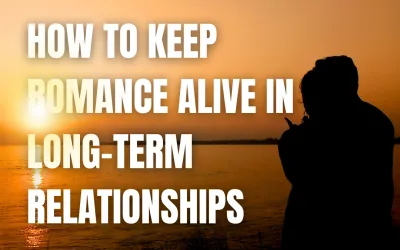People often experience a roller coaster ride of emotions while in a relationship. We sometimes let go of ill-mannered behaviour, but some behaviour one might not want in a relationship. In this article, we are not only analyzing the situation superficially but also taking deep insights into toxic behaviours. People usually get angry, jealous, and argue, but some toxic behaviour may affect the way you see yourself and the world.
One needs to identify what disturbs your mental health and affects your decision-making. The toxicity of a relationship depends on many factors, such as cultural background, upbringing, and the psychology of a person during childhood. There are various symptoms of toxicity in relationships, such as feeling unsafe, emotionally and financially dependent on your partner, feeling unhappy, self-doubting, a feeling of dependency, etc.
In this blog, we will discuss seven toxic behaviours that damage the equilibrium of relationships.
- Emotional manipulation
It’s even known as gaslighting, a subtle form of emotional manipulation that often results in the recipient doubting their perception of reality and sanity. It is the most common form of toxic behaviour, which no one should tolerate. People usually say, I never said that; you imagined it because you are too insecure, or it’s your nature to take it negatively and blame me for your every doing.” This behaviour doesn’t focus on right and wrong; it just shows control over conversation and relationships.
- Insulting
People in a relationship have a general tendency to crack jokes or pass funny comments on their partners to lighten the mood. This humiliation can be taken as harsh criticism or sarcastic jokes that may be taken negatively and affect the individuality of a person. Sometimes playful banter and witty comments hurt the sentiments of the partners, and a sense of insecurities may develop in the relationship. To explain it more clearly, people make comments like, Sometimes I wonder if I married an idiot! Even after so many years, we spent together, you are not aware of what I like to eat. Don’t pay attention to her; she’s got no clue.
- Lonely
In relationships, due to hectic schedules, partners don’t get sufficient time to spend moments with each other. It’s not always that one couple has to spend time going on vacation or to the islands. When partners don’t stay in touch, don’t meet, or don’t give importance to their presence, this feeling of isolation is experienced progressively over a long period. If your partner keeps on making excuses to be around your friends and family and attending social events with you, then this can slowly and gradually isolate you from society. For example, comments like I can’t believe you would pick them over me; How can you be so selfish that you made plans without including me? Sometimes partners give you the cold shoulder or the silent treatment if their interest is not acted upon. Please mark it as toxic behaviour by the partner.
- Communication gap
Sometimes partners choose to shut their mouths and run away from the conversation; this can be traumatic as other partners can be confused and overthink negatively or out of the blue, which might not be the case. This can even be called stonewalling or silent treatment. Sometimes partners are not able to express their emotions and open up about certain aspects, so they avoid talking. This can upset your partner and make them feel like they are being ignored. To make it simpler, here are some situations that will explain it in a better way: in the middle of a conversation, your partner walks away or refuses to answer your question.
- Threats
In any relationship, the partner gives a threat and subtly, in hidden words, intends to cause fear or doubt. Sometimes, even to check how much our partner cares and loves us, we give empty threats that we will leave you and die before you. All this creates fear in relationships. One cannot enjoy the present while worrying about what will happen if this happens. This type of behaviour is not appropriate for any healthy relationship.
- Blame Game
The blame game is when one doesn’t take responsibility for their decisions and keeps on blaming their partner for their deeds. This type of behaviour can make partners feel guilty for being with them. The whole charm and beauty of being in a relationship are ruined when the blame game starts. It’s like we are running away from the present problem or situation by blaming it all on our partner. A relationship doesn’t last long like this; sooner or later, the partner will feel guilty and decide to move on.
- Dependency
Generally, in a relationship, the roles and responsibilities are distributed, and each partner has to do their duties. In this type of arrangement, partners are dependent on each other for particular activities. It makes one powerless because, without him or her, this work cannot be done. For instance, in India, married couples tend to have women take care of the home, children, and everyone else while men focus on earning and livelihood. In these scenarios, if the female partner gets ill or the male partner loses his job, the whole equation gets imbalanced. Instead, couples should be mentally prepared to face every challenge life has to offer.
In a nutshell, this blog focuses on toxic behaviour, which one should avoid growing exponentially in relationships. We might be unknowingly doing one or the other thing, but ultimately, as humans, we are prone to making mistakes. But it’s always better to learn on this beautiful journey of life. I feel every relationship is different; it depends on the nature, bonding, and tenure of the relationship. No guide or rulebook can teach you how to have healthy and long-lasting relationships. It’s us who have to analyze and figure out on our own how to make our relationship successful.








0 Comments